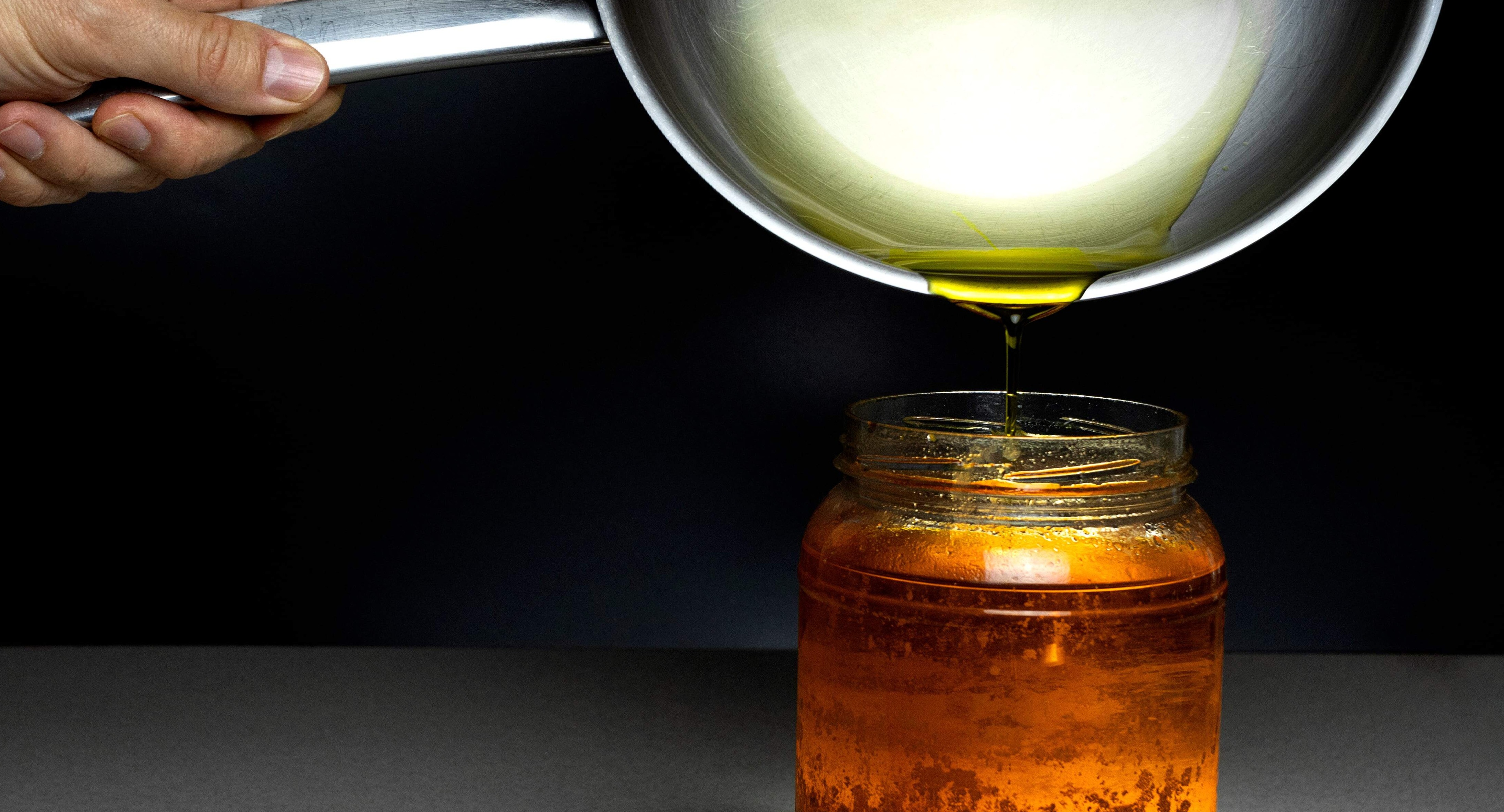Biodiesel Raw Material from Fried Food Scraps

KEY INFORMATION
TECHNOLOGY OVERVIEW
Cooking oil waste has become a significant environmental problem in recent years. Improper disposal of used cooking oil and fried food scraps can lead to pollution of water sources and the release of harmful greenhouse gases. When poured down into drains, it travels through sewage systems to rivers and oceans, disrupting ecosystems, clogging water treatment plant filters, and complicating water purification processes. Additionally, there are higher costs associated with waste disposal in volume-based plastic garbage bags which are also not environmentally friendly.
This technology addresses the above pain points by offering a sustainable solution that recycles discarded fried food scraps into high valued biodiesel raw material, preventing water pollution and sewage pipe blockage when discarded without appropriate measures.
This innovation addresses a critical market need by providing a greener alternative to conventional disposal methods, reducing waste disposal costs and the production of high valued biodiesel as an end point.
The technology owner is seeking collaborations with companies in the fields of waste management and biodiesel production for test-bedding and research & development projects aimed at recycling fried food scraps into biodiesel.
TECHNOLOGY FEATURES & SPECIFICATIONS
Advanced System Features: It starts with the input of fried food crumbs, where impurities are removed. The material undergoes heat treatment with controlled rotation to optimize the separation process. The mixture is then separated into two main components:
- Sludge: used as a raw material for biodegradable plastics, supporting the development of sustainable materials.
- Crude Waste Cooking Oil: Further refined into biodiesel raw material, offering a renewable alternative to traditional fossil fuel.
IT-Driven Collection and Digitalization: It utilizes an IT platform to collect and digitize the supply chain of fried crumbs which enhances the efficiency and traceability throughout the process.
Recycling Focus: Emphasizes recycling food waste rather than upcycling, ensuring complete repurposing into new products which maximizes resource recovery by fully converting waste into valuable outputs.
POTENTIAL APPLICATIONS
This technology has the potential to be applied on these areas, harnessing on its ability and process to convert waste cooking oil into high valued biodiesel.
Renewable Energy Sector: The refined waste cooking oil can be used as a raw material for biodiesel, a renewable fuel that can power diesel engines in vehicles, machinery, and generators, reducing reliance on fossil fuels and lowering greenhouse gas emissions.
Waste Management and Recycling: Innovative waste management solution for food processing industries, restaurants, and large-scale kitchens, turning waste by-products into valuable resources rather than disposing of them.
Agriculture and Animal Feed: The sludge can also be used as a nutrient-rich feedstock for insect farming, supporting the production of sustainable animal feeds.
Market Trends & Opportunities
The global biodiesel market was valued at approximately ~USD 43 billion in 2022, with an expected annual growth rate of 5.25%, projected to reach ~USD 65 billion by 2030. Additionally, the market for bio aviation fuel is anticipated to increase by 60 million tons by 2040 (growth of over 20%). This underscores a strong demand for sustainable biofuels.
Unique Value Proposition
Innovative Raw Material Use: Unlike other companies that primarily use waste cooking oil, this technology utilizes fried food crumbs as the main raw material, allowing a more versatile input stream, tapping into an underutilized waste source.
Superior Additive Development: Significant advancements in additive development have resulted in a 50% increase in overall yield, making their process 2.5 times more effective than competitors. Furthermore, the enhancement in acid value indicates a superior quality of biodiesel raw material, which translates to improved efficiency and performance.
